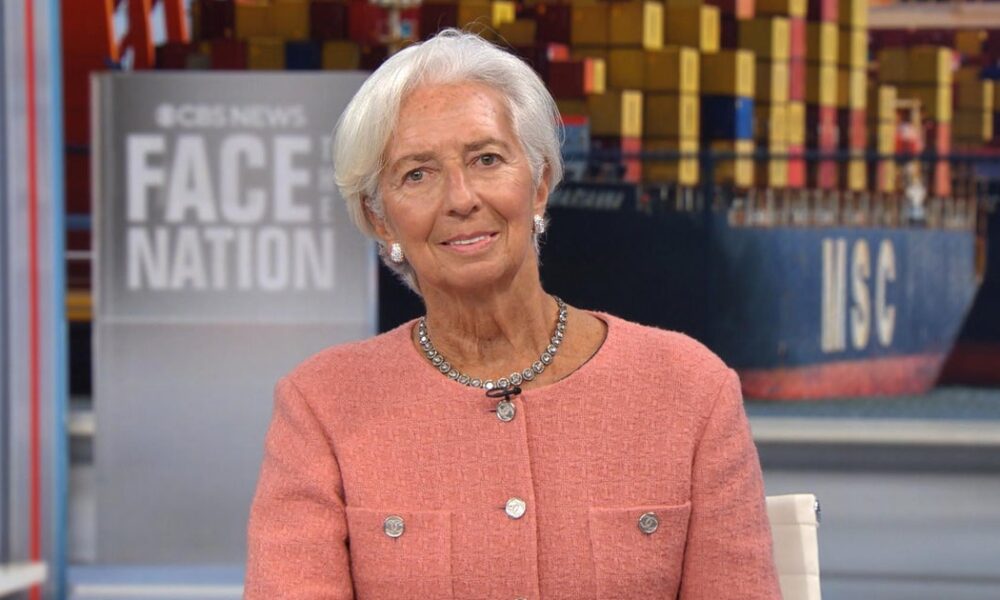On October 19, 2025, Christine Lagarde, President of the European Central Bank (ECB), shared insights on the shifting landscape of the global economy during an interview on “Face the Nation” with Margaret Brennan. Lagarde highlighted the significant impacts of trade tariffs and artificial intelligence on international commerce and economic dynamics.
Transformative Economic Landscape
Lagarde described the current state of the global economy as being in a phase of transformation. She attributed this shift to two main factors: increasing tariffs and the growing influence of artificial intelligence. According to her, tariffs have changed trade relationships worldwide, leading to new alliances and altering traditional methods of commerce.
Specifically, the effects of Donald Trump’s tariffs are projected to cost global businesses upwards of $1.2 trillion this year, with many of these costs ultimately passed on to consumers. Lagarde noted that many economists may have overestimated the immediate effects of these tariffs, but she cautioned that the full impact has yet to be felt.
Trade Wars and Consumer Impact
Addressing the implications of tariffs, Lagarde provided concrete numbers to illustrate the situation. The tariff on European goods imported into the United States has surged from 1.5% to 13% due to recent U.S. policies. This substantial increase has resulted in a division of costs: one-third is borne by European exporters, one-third by U.S. importers, and one-third by consumers. Lagarde emphasized that this situation creates a pressure on corporate margins that could eventually be transferred to consumers.
The discussion also touched on ongoing negotiations between the United States and China, particularly regarding restrictions on rare earth elements. Lagarde expressed skepticism about the current aggressive posturing from both sides, suggesting that such tactics are typical in negotiations. She noted that China holds a significant advantage in this area, which could complicate discussions.
Despite frustrations regarding Europe’s stance on China, Lagarde asserted that both Europe and the United States are aligned in their interests concerning rare earth trade, highlighting the necessity for a united front in negotiations.
Currency Stability and Investor Confidence
Lagarde raised concerns regarding the future of the U.S. dollar as the dominant global currency. She observed signs that investor confidence in the dollar has begun to wane, pointing to the rising price of gold, which has increased by over 50% since the beginning of the year. This trend signals growing anxiety among investors regarding the dollar’s status.
To maintain the dollar’s strength, Lagarde emphasized the importance of geopolitical stability, adherence to the rule of law, and robust institutions. She cautioned that without these elements, the dollar’s position could erode, akin to historical shifts seen with other currencies.
Additionally, Lagarde discussed the situation in Ukraine, where President Volodymyr Zelenskyy recently sought her insights on utilizing frozen Russian assets. Lagarde suggested that a fair use of these assets could involve operational loans, which would leverage cash balances as collateral. This approach might encourage Russia to engage in negotiations regarding the conflict.
In conclusion, Lagarde’s comments reflect a complex interplay of economic factors influencing the global landscape, as both challenges and opportunities emerge from ongoing trade dynamics and geopolitical tensions. Her insights underscore the need for strategic cooperation among nations in navigating these transformative times.







